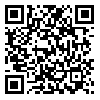Wed, Dec 24, 2025
Volume 6, Issue 2 (Spring 2020)
Caspian J Neurol Sci 2020, 6(2): 108-123 |
Back to browse issues page
Download citation:
BibTeX | RIS | EndNote | Medlars | ProCite | Reference Manager | RefWorks
Send citation to:



BibTeX | RIS | EndNote | Medlars | ProCite | Reference Manager | RefWorks
Send citation to:
Aflakian M, Atashpour S H, Khayatan F. Developing the Schema Therapy Based on Obsessive-compulsive Disorder and Comparing With Cognitive-behavioral Therapy. Caspian J Neurol Sci 2020; 6 (2) :108-123
URL: http://cjns.gums.ac.ir/article-1-328-en.html
URL: http://cjns.gums.ac.ir/article-1-328-en.html
1- Department of Psychology, Isfahan (Khorasgan) Branch, Islamic Azad University, Isfahan, Iran.
Abstract: (3092 Views)
Background: Obsessive-Compulsive Disorder (OCD) is a type of anxiety disorder different treatment, but its treatment is very difficult. Objectives: This study aimed to develop schema therapy based on psychosocial issues of patients and compare this therapy with cognitive-behavioral therapy on rumination.
Materials and Methods: In this analytical cross-sectional study, the study population included all referred to specialized psychotherapy centers in the field of Obsessive-Compulsive Disorder (OCD) in Isfahan City, Iran, during spring and summer of 2019. This research consists of four stages. The first stage was a qualitative research using a directional content analysis method through a semistructured interview. The second stage was quantitatively done with a quantitative content analysis method. The third stage was of validation type with Lawshe’s method, and the last stage used a quasi-experimental method, pret-est/post-test type with a control group, and a follow-up period of 45 days. The subjects responded to the questionnaire based on the rumination response scale before and after the intervention.
Results: The results of the first stage suggested 7 main themes. The second stage led us to the development of a treatment package for schema therapy. The findings of the third study indicated the validity of the package developed by the evaluators. The results of the fourth study showed that the mean scores of rumination in the two experimental groups (schema therapy and cognitivebehavioral therapy) significantly differed from the control group scores (P<0.01). Besides, based on the results, schema therapy was more effective in reducing the rumination of patients compared with cognitive-behavioral therapy (P<0.001).
Conclusion: Compared with cognitive-behavioral therapy, psychosocial-based schema therapy is more effective in reducing the rumination of the patients.
Materials and Methods: In this analytical cross-sectional study, the study population included all referred to specialized psychotherapy centers in the field of Obsessive-Compulsive Disorder (OCD) in Isfahan City, Iran, during spring and summer of 2019. This research consists of four stages. The first stage was a qualitative research using a directional content analysis method through a semistructured interview. The second stage was quantitatively done with a quantitative content analysis method. The third stage was of validation type with Lawshe’s method, and the last stage used a quasi-experimental method, pret-est/post-test type with a control group, and a follow-up period of 45 days. The subjects responded to the questionnaire based on the rumination response scale before and after the intervention.
Results: The results of the first stage suggested 7 main themes. The second stage led us to the development of a treatment package for schema therapy. The findings of the third study indicated the validity of the package developed by the evaluators. The results of the fourth study showed that the mean scores of rumination in the two experimental groups (schema therapy and cognitivebehavioral therapy) significantly differed from the control group scores (P<0.01). Besides, based on the results, schema therapy was more effective in reducing the rumination of patients compared with cognitive-behavioral therapy (P<0.001).
Conclusion: Compared with cognitive-behavioral therapy, psychosocial-based schema therapy is more effective in reducing the rumination of the patients.
Type of Study: Research |
Subject:
Special
Received: 2020/08/25 | Accepted: 2020/06/12 | Published: 2020/06/12
Received: 2020/08/25 | Accepted: 2020/06/12 | Published: 2020/06/12
| Rights and permissions | |
 | This work is licensed under a Creative Commons Attribution-NonCommercial 4.0 International License. |






